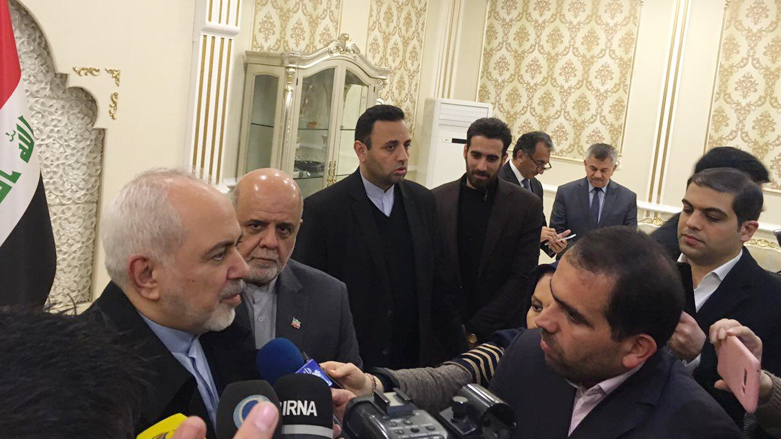Iran FM arrives in Baghdad amid rising tensions with US

ERBIL (Kurdistan 24) – Iranian Foreign Minister Mohammad Javad Zarif on Saturday arrived in Baghdad and is set to meet with senior Iraqi officials and leaders as tensions grow between his country and the United States.
Zarif’s tour will begin with a meeting with his Iraqi counterpart Mohammed Ali al-Hakim. He is later due to meet President Barham Salih, Prime Minister Adil Abdul-Mahdi, and then Parliamentary Speaker Mohammad al-Halbousi, Iraqi diplomatic sources have said, as quoted by local media.
The trip comes amid growing concerns among the Iranian public of a possible conflict between Iran and the US as Washington bolstered its presence in the Middle East with an additional 1,500 troops. US officials say the deployment is meant to deter Iran from attacking the US and its allies in the region.
Read More: US sending more troops to Middle East; Iran planned to put missiles on fishing boats
Fears that the tense atmosphere could lead to a proxy war in Iraq – where Iran exercises significant influence and supports powerful militias, and the US has about 5,200 troops – followers of influential Iraqi Shia cleric Muqtada al-Sadr on Friday launched a series of anti-war demonstrations in Baghdad and other cities in the south.
Sadr, a long-time critic of foreign powers’ intervention into Iraq’s internal affairs, has already stated his opposition to actions that could lead to conflict.
“I am not for fueling a war between Iran and America,” he said in a Twitter statement.
Senior Iraqi leaders, however, have suggested mediating between Washington and Tehran. During a press briefing on Tuesday, Abdul-Mahdi said both governments had informed Iraq they have “no desire in fighting a war.”
The Iraqi prime minister added that though he would not term it “mediation,” Iraq was working to “defuse the crises” by acting as a messenger between the two sides.
Iranian military officials say they do not want war but have stated they would take retaliatory measures should they detect what they believe to be hostile action by US forces in the region.
Iran’s Islamic Revolutionary Guards Corps (IRGC) has also threatened they would block passage through the Strait of Hormuz should the US choke their economy through sanctions, of which Washington has implemented several, and limited their exports.
“America...is sending two warships to the region. If they commit the slightest stupidity, we will send these ships to the bottom of the sea along with their crew and planes using two missiles or two new secret weapons,” General Morteza Qorbani, an adviser to Iran’s military command, told the Mizan news agency on Saturday, Reuters reported.
Editing by Karzan Sulaivany
(Corrected number of additional troops the US deployed to the Middle East to 1,500)
